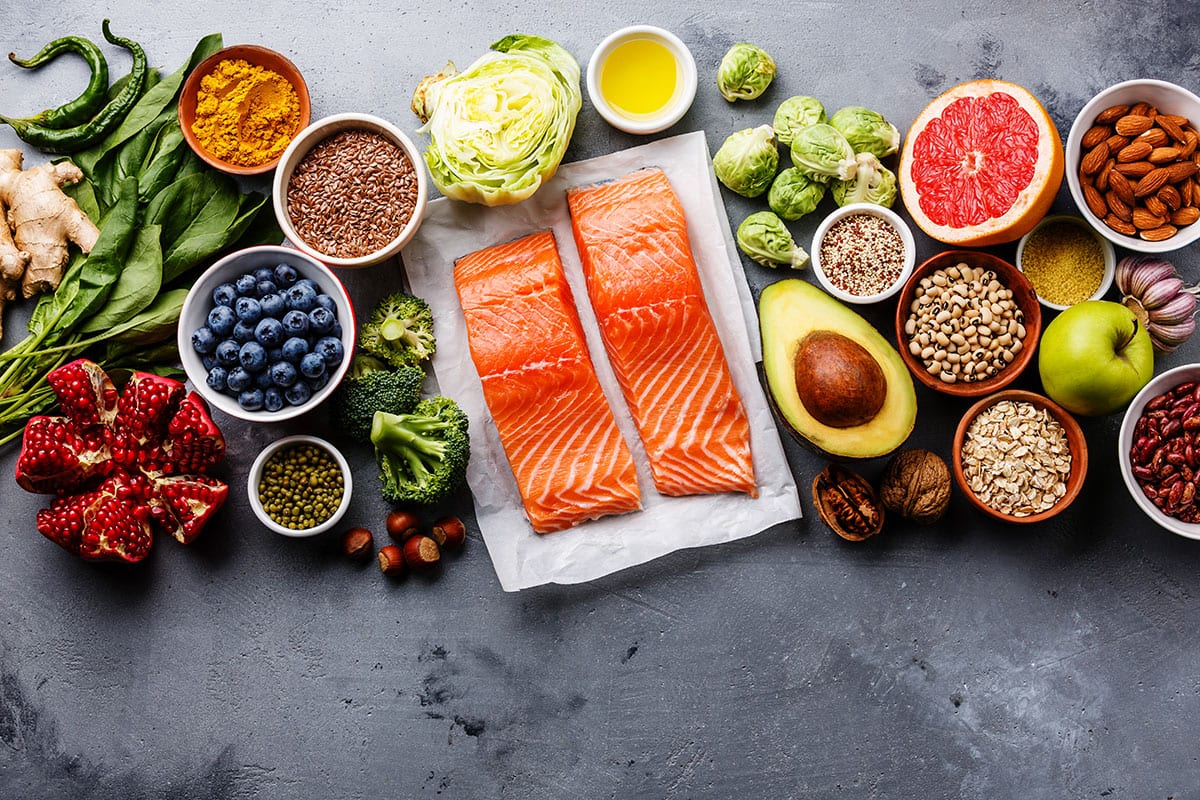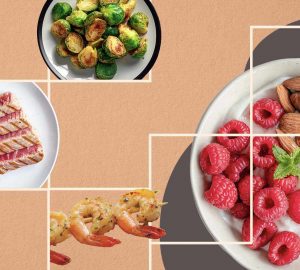Too much inflammation in the body can lead to weight gain and other issues you don’t need in life! Eat for your health with these 7 anti-inflammatory foods.
Inflammation is a reaction in our bodies that occurs when we have infections, injuries, or our body feels attacked. This type of inflammation, or swelling, is healthy. It’s a sign that your cells are flocking to the damaged area and attempting to fix the problem.
But chronic inflammation is not healthy. It can cause disease, weight gain, and increased stress levels.
While there are medications aimed at reducing your swelling, a healthier diet can help, too. Adding natural anti-inflammatory nutrients to your daily diet can help reduce the side effects. In some cases, they might even stop entirely!
These seven anti-inflammatory foods are expert-recommended for a healthier overall you!
1. Fatty Fish
The fatty acids EPA and DHA metabolize into resolvins and protectins. These compounds reduce your chances of developing conditions such as metabolic syndrome, diabetes, and kidney or heart disease.
Since your body can’t produce omega-3 fatty acids on its own, it relies on you to feed it properly. A meal with omega-3 rich fish twice a week is usually enough. These nutrients are abundant in fish like salmon, anchovies, sardines, mackerel, and herring.
If fish isn’t part of your regular diet, don’t stress! You can get similar, but not quite as natural and beneficial, fatty acids from over-the-counter fish oil supplements.
2. Whole Grains
Whole grains are the complete seed of a plant. It takes a little bit of a scientific explanation to understand the actual difference between “grains” and “whole grains.”
Before processing, a grain contains three parts: the endosperm, germ, and bran. The grain with all these parts still attached to it is the whole grain you’re looking for.
Consuming whole grains as part of a regular diet can help reduce obesity and cholesterol levels. They are also high in fiber, which is a natural anti-inflammatory foods.
Foods with these unrefined grains include oatmeal, brown rice, and whole-wheat bread. Look for a label that says whole grain or unrefined grains. Multi-grain is not quite as good but is still better than processed grains.
3. Beans and Legumes
Beans have a lot of fiber in them naturally, but they also have antioxidants. Antioxidants are crucial amino acids that fight free radicals in your body. These harm the cells and can lead to more inflammation.
Beans and legumes contain fiber and protein, too. Between the antioxidants and the other anti-inflammatory properties, these foods rank as one of the best health boosters.
Two servings of beans and legumes per week should be enough to help counter mild inflammation. Add chickpeas, black-eyed peas, black beans, lentils, or pinto beans to your plate to enjoy these benefits.
However, if you’re one of those who have a sensitivity to foods, take this addition to your diet slowly. Beans are a common irritant to those with allergies and can cause inflammation instead of combat it.
4. Nuts and Seeds
Certain nuts and seeds have poly- and mono-unsaturated fats in them. These are healthy fats that lower cholesterol and reduce inflammation. Besides these fats, they also have protein and antioxidants, making them a superfood for many health conditions.
Because of the benefits, people with inflammatory diseases like arthritis should try adding nuts, in moderation, to their diets.
Try to stick to raw and unsalted varieties. Remember that nuts and seeds tend to have a higher caloric count, so keep your servings small.
5. Leafy Greens
Dark, leafy greens have a ton of benefits for your body. They are so nutrient-dense that even as children, we learn to eat our greens.
One of the best results of eating leafy vegetables is their almost magical ability to reduce chronic inflammation. Anti-inflammatory foods are full of vitamins and nutrients that work together to improve your body’s functioning.
Since they are full of vitamins A, D, E, and K, you can’t go wrong by including these greens in your diet:
- Spinach
- Kale
- Arugula
- Turnip greens
- Beet greens
- Collard greens
As with any vegetable, fresh is best! You can eat your greens raw or cooked in olive oil for the maximum benefits.
6. Fruits
When it comes to healthy food choices, it’s almost always an excellent choice to opt for fruit.
Certain fruits contain the flavonoid anthocyanin, which has anti-inflammatory properties. These are so strong that they’re comparable to that of nonsteroidal anti-inflammatory drugs (NSAIDs) like ibuprofen.
Some of the most potent fresh fruits include:
- Cherries
- Strawberries
- Watermelon
- Plums
- Raspberries
- Blueberries
Adding fruit to your pies and desserts doesn’t quite have the same health kick, but as long as you’re using fresh varieties, go for it! Avoid sugary, canned, or frozen fruits.
7. Turmeric
Standard in many Indian dishes and other spicy fares, turmeric is a spice known for its robust flavor. It also has a large concentration of curcumin in it, which is a powerful antioxidant.
While it’s hard to get enough curcumin in turmeric to help reduce inflammation unless you’re eating it daily, you can take supplements. Choose a turmeric supplement that contains curcumin and piperine. The piperine helps your body absorb the curcumin faster.
Conclusion
Your body already strives to run efficiently without much help from you. But what it does require is that you feed it the fuel it needs to do every job it has optimally.
Many nutrients your body needs it cannot produce internally — especially those that help combat inflammation. If you’re trying to prevent or reduce swelling, these seven anti-inflammatory foods, added regularly to your diet, can help!
[Author Bio]:
Dominique Daniels has five years of Property Management experience working primarily in high-end apartment community living. Her ability to consistently deliver white-glove service to her residents and prospects has propelled her in a successful career that now finds her leading the team at Tobin Estate Apartments.








